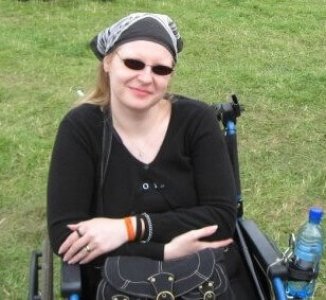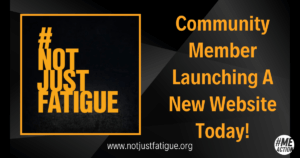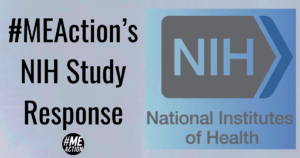This is me, my story, I am one of the millions missing. I may not look ill to you, but if you see me, it will be because I am having a ‘good’ day because I am well enough to be able to get dressed and leave the house. The rest of the time I am missing from society, you will not see me as I am in bed, resting and sleeping, but never feeling rested or refreshed. I have missed out on so much of life… The nursing career I should have had… The children I should have had… The normal life I should have lived.
Getting sick
I’m now 39 and I have had myalgic encephalomyelitis (ME) for almost 20 years, I was just starting out in life with my boyfriend (now husband), having just moved out of my parents’ home for the first time. It was supposed to be the start of our life together. I had started a job that I loved and was hoping to train to be a nurse in the future. We were planning to get married and start a family, doing all the normal things that young couples take for granted. This was all pulled out from under me when I developed ME.
Although I was ill throughout my teenage years and had been diagnosed with several chronic conditions (i.e chronic abdominal pain, IBS, degenerative disease of lower lumbar spine, PCOS), the symptoms of ME first started to show in 2000 after I moved to Bristol to start my first full time job after college. We were living in a small damp flat and in the winter, I had a severe bout of flu which I never got rid of completely, followed in the January of 2001 by a chest infection. I had also recently been diagnosed with Type 2 Diabetes and was experiencing bad headaches. The combination of these things, I think, meant that my immune system just couldn’t cope.
I fought my hardest to keep going with as normal a life as possible – I thought it would get better eventually, but it never did.
No one told me to stop, to rest and let my body try and recover. In fact, quite the opposite, I was told there was nothing wrong, just keep going, it would get better soon. So, I followed the GP’s advice – after all, all my tests were coming back normal, so maybe they were right? Eventually, my body just couldn’t keep going anymore, it became like a broken battery that refused to charge properly. In hindsight this it was the worst advice I could have been given, but at the time, I didn’t know any better.
At first, the GP’s told me that the symptoms I was experiencing (including the extreme fatigue/exhaustion, headaches, and pain, etc.) would resolve once my diabetes was under control. I was advised to keep going, eat healthily and exercise to bring my weight down. Once it was clear that my diabetes was under control and I still felt no better, more blood tests were taken, and I was referred to neurology at the hospital for the headaches. However, everything was still coming back as normal, and I was again advised nothing was wrong and to keep going, eat healthily, exercise and lose weight and keep doing everything normally.
After several more appointments and not getting any further forward with the doctors, and feeling like I was getting worse and not any better, I was starting to get frustrated. I was struggling to go to work and had to move to working part time – the rest of the time at home I would struggle to do anything else and spent most of the time in bed asleep. Nothing seemed to be getting better, so I decided to research my symptoms myself on the internet. Everything seemed to fit with ME and so I asked my GP about it – I was told it was a strong possibility, but that there was no treatment at that time, and nothing that they could do to help me, and so was advised to contact the ME society.
I was devastated to hear that there was nothing more they could do, and that no treatment was available. This was made worse because at the age of 22, and after barely starting my career as a lab technician at the National Blood Service, I was retired from my job as being medically unfit. I felt like such a failure after I had tried so hard to keep going for so long, and it all seemed to be for nothing, and worst of all I was getting worse, not better.
After almost a year of tests and not knowing what was wrong with me, I finally had a name for it, a diagnosis – but at the same time everything came to a stop, there was nothing else they could do to help me.
Now years later that I understand the condition better, the stigma against it, and the difficulties surrounding it, I can honestly say I would rather have been diagnosed with almost any other condition.
The trial
After losing my job and still not getting any better, I was invited to participate in a trial called ‘Chronic Fatigue Syndrome Research Project’ by my GP. It was run at the pain clinic at Frenchay Hospital in Bristol in 2002 and was being conducted into the effectiveness of cognitive behavioural therapy (CBT) and graded exercise therapy (GET) as a treatment for Chronic Fatigue Syndrome (CFS). Once I had been discharged from the neurologist with a diagnosis of Chronic Daily Headaches, I was eligible to take part and was enrolled on the trial in February 2002.
l jumped at any chance to get better from the horrible way I was feeling and find a possible treatment for the condition. I was hopeful this trial would help me recover, and finally get me healthy and back to work. The trial was split into 3 arms, CBT/GET, Standard medical care, and Relaxation & Support group. I was randomly allocated into the CBT/GET group and attended the hospital for 8 group sessions, as well as the assessments and follow ups. However, it was after just a few sessions that I felt that the treatments were making me worse, especially the GET, but I still hoped that this treatment was going to help make me better eventually, so I redoubled my efforts and kept trying.
As the trial went on, I was finding it harder and harder to participate in the exercises and activities, and was unable to complete the ’goals’ set by the team (things such as waking up at set times and not napping in the day, etc). It felt like I was being treated like it was my fault, and I was made to feel that it was me ‘not trying hard enough to get well’ or that ‘I didn’t really want to get well’. It felt like I didn’t matter to them because I couldn’t do what they wanted me to do, and their focus soon shifted to others in the group who were physically able to comply and who were feeling better with the treatment.
Although I was struggling with these aspects of the trial, I was enjoying the company of the other participants at the group sessions, and the sessions on pacing ourselves were very helpful for me to start learning the limits of what my body was now able to do. However, whilst talking to the others in the group it was clear to me that there were people there with varying conditions not just M.E – they just didn’t have the same symptoms or experiences as me, most notably the post exertional malaise (PEM). The predominant criteria for getting into this trial was fatigue of longer than 6 months – I feel because of this that there were several different conditions represented in the trial, not just ME sufferers.
“The treatments (CBT/GET) that I did as part of the trial had had a hugely negative impact on my daily life.”
Unfortunately for me taking part in this trial caused my health to decline drastically as I had a severe negative reaction to the treatments. For example, at the start of the trial I was still able to drive myself to the appointments and needed no aids. However, by the time the results of the trial came out a couple of years later in 2005, and we went back for the presentation, I had had to give up driving and needed to use a walking stick for short distances, and was having to be pushed in a wheelchair for longer distances.
The treatments (CBT/GET) that I did as part of the trial had had a hugely negative impact on my daily life, and so when the results showed only positive outcomes for the data and nobody made worse by the treatments, I was shocked and upset. I naturally questioned the results at the presentation and asked where I was represented on their graphs. I was told that it was because they had used a variety of the mean and median averages from the data, therefore discarding the people at either end of the scale.
To me, this felt wrong and I felt their results should have shown everyone, including those made worse by the treatments. By using varying mathematical interpretations of the results, I felt people like me, who were made worse, were excluded from their results – therefore showing the results in a more positive light than I believe the raw data would have shown. When new drugs are going through testing, all side effects have to be declared, and I didn’t see why this should have been any different when testing a new treatment.
To me it felt like, because of the way the trial was designed, it could only have limited scientific value, and was going to be of no use for finding a treatment for ME. This meant, after everything me and others went through, we were no further forward in finding a way to treat the illness.
Therefore, I was shocked to find that the PACE Trial had been approved and conducted, not very long after the end of the trial I took part in. This was followed very soon after by the set-up of the current NICE guidelines and roll out of the CFS clinics on the NHS (including one at the Frenchay pain clinic). This was all based on the results of the PACE trial which I felt, given my experience, couldn’t have been correct.
I now know that the trial I took part in was one of several small trials around the country that predated the national PACE trial – but I believe that the PACE trial may not have got the approval it did had these small trials not shown the positive results they did.
Over the years
In the years since taking part in the trial, I have gradually declined and lost more and more of my independence. I am now housebound and often bed bound, especially during flare ups. I have a stairlift and other aids at home to help me get around, and I am currently spending up to 95% of my time in bed resting and sleeping. I am unable to leave home unaided and I have to use a wheelchair when out of the house for any distance, with a limited ability to walk very short distances using my walking stick on better days. I usually try to leave the house around once a week, as it can take me a week or more just to recover from a small amount of exertion, but once I have built up enough energy to go out, I try to enjoy life as much as possible with the limited energy available to me.
Over the years I’ve had to teach myself to adapt the way I do things and to pace my life as much as possible to avoid flare ups where I can. I now take things minute by minute, hour by hour, day by day, carefully using my limited amount of energy.
I am extremely lucky to have a kind and supportive husband, who is not only the main breadwinner and runs the house, but also cares for me full time as well. I also have a wonderful family and friends all of whom have been a great support to me over the years.
I have had a lot of positive and negative encounters with the medical profession over the years. Unfortunately, the negatives have outweighed the positives, and my trust in the medical profession has been severely damaged, to the point that I now very rarely visit any doctors because of the constant negative experiences.
Most doctors I have seen over the years have had a very narrow view of the condition if they believe it exists at all. Many will only go with the NICE guidelines’ recommendations of CBT/GET rather than listening to me as a patient and person. Even after explaining my history, and the severe adverse reaction to the treatments I had in the trial, very few of them have listened to me.
Going forward
When I first got sick, I was being told to ignore my body and push through the pain and fatigue by doctors, constantly being told that there was nothing wrong with me or that it was all in my head. Because of that, I believe I am now much sicker than I could potentially have been if I had been given the correct advice from the beginning, and therefore the chances of me recovering to full health are much slimmer because of this advice. This desperately needs to change and doctors and other health professionals need better training and understanding of the condition going forward.
I went through CBT/GET even before the NICE guidelines were in place, but feel that they should never have come into effect in the first place, given the negative impact that me and others had from the treatments. This would never have happened if we were talking about a drug that people were having an adverse reaction to, and in the years since these trials, many others have been made worse by these treatments because of the NICE guidelines and CFS clinics.
I am hopeful that the current review into the NICE guidelines will completely remove CBT/GET as treatments for ME so others will not go through what I and many others have. Until the review is completed, I hope a warning will be issued on the current guidelines to alert clinicians to the potential dangers of recommending these treatments to people with ME.
We desperately need funding to be channelled into biomedical research so we can find an effective diagnostic test and treatment. I believe that we need to focus on a more patient led approach with individual treatment plans, a quick diagnosis, and a recommendation of complete rest at the onset of illness, followed by pacing and help with individual symptoms, to give the best chance of some recovery.







8 thoughts on “A Trial of ME – Elizabeth’s Story”
Elizabeth—go to LDN.org & get on this med immediately! Amazon sells Linda Elsegoods book —get it. I was as sick as you once. not anymore. Let me know how it goes.
What Drug are you recommending Lucia Jarush?
Thanks for sharing your story, Elizabeth, and I’m so sorry you worsened because of the GET debacle.
Thank you for sharing your experience. I am hopeful that, now the World Health Organisation recognises M.E./CFS we will be better understood. Research is going on now more than in the past. Like so many of us we are previously active, intelligent people who desperately want to get on with our lives. It is so hard to take when people say this is “all in our minds” and l am reluctant to tell people l have this illness because of the comments and reactions. Let’s keep hoping for a cure ….!
Thank you for sharing your story Elizabeth.
We have all felt the negative consequences of these trials but no one more than people with ME/CFS who took part in them. It is fascinating and heartbreaking to read your story. I have severe ME/CFS so I know exactly how much you lost.
Please take a test for heavy metals and nutrients that you are lacking by doing a hair strand test/Oligoscan test. Then change your diet to rebalance your body. ME/CFS is mostly due to toxins as is cancer and so if your treat it as such and take action to remove the poisons from your body, you should start to improve. GcMaf, Vit B17, High Vit C as well as herbs and spices can all help. Good luck.
Hi Suchita! Which diet do you recomend?
Im from Spain, last month i had the notice that my husband has severe ME, we are getting crazy. He cant get up from the bed. All the doctor Say that there arent treatment for him. And he is getting worst every day. He is 27 years and is beeing in a dark bed, within any energy to move him body or use him mind. Im very scary and we need some hopes.
Im in [email protected]
Hi Suchita! Which diet do you recomend?
Im from Spain, last month i had the notice that my husband has severe ME, we are getting crazy. He cant get up from the bed. All the doctor Say that there arent treatment for him. And he is getting worst every day. He is 27 years and is beeing in a dark bed, within any energy to move him body or use him mind. Im very scary and we need some hopes.
Comments are closed.